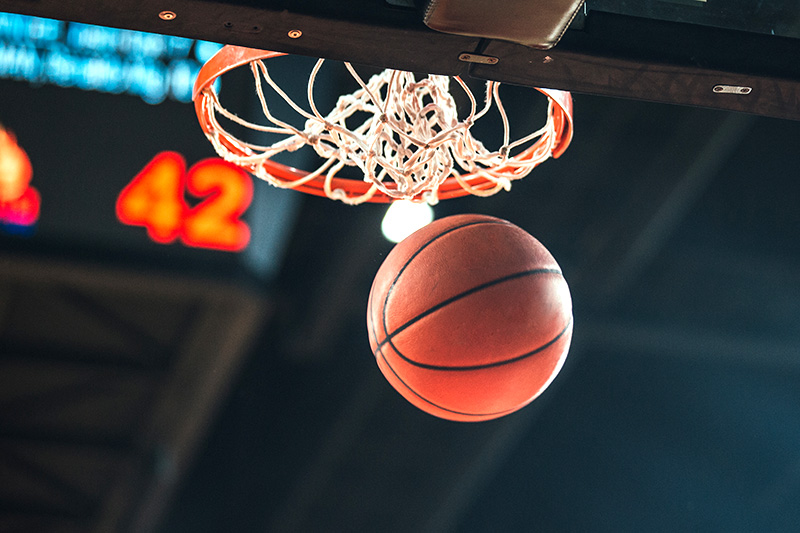Talking March Madness
February 4, 2020

Data scientist and sports analyst Rob Arthur will be at Skokie Public Library February 12 to present How to Tame March Madness, an event on building a good March Madness bracket.
Arthur’s data expertise gives him a particular perspective on sports that goes beyond favorites and loyalty. We asked him about his thoughts on March Madness, as well as thoughts on professional and collegiate sports in general.
From your perspective, what is it about college basketball that attracts so many people?
I think there are a few factors. A lot of people go to college (or live near one), and so acquire a strong fan allegiance. Lots of people might not care too much about the individual athletes themselves, but root for their alma maters or local schools the way they root for the nearest city's sports teams. March Madness itself has to be a big part of that. It's a huge tournament and includes so many schools that a lot of different fan bases can get into it.
Why do you think March Madness is so hard to predict, compared to other events?
Part of it is the sheer volume of contests that have to be predicted. There are more than 60 teams in the tournament, and if you get one game wrong, the effects cascade. A "Cinderella" that knocks out a favorite can ruin your entire set of predictions. Second, a lot of the teams face limited out-of-conference games before the tournament, so if a whole conference is stronger or weaker than average, it becomes hard to know how to grade the teams in that grouping. Finally, you don't have the same quality or quantity of player tracking data that's available at the NBA level, and the NBA data is more granular and informative.
Do you have any tips for those participating in a March Madness bracket this year?
The best advice I can give is to disregard your gut and look up some of the statistically based methods out there. Don't pin your hopes on just one, either: try to average as many good predictions as you can to build your bracket.
This is a general sports question. When considering the recent Astros cheating allegations, do you feel professional sports teams are grappling with the need to win versus the need to play “clean”? Or is this a one-off event?
It's certainly not a one-off event. This is a major theme running through professional sports right now, whether it's baseball with sign stealing and ball doctoring or football with Deflategate and Spygate and Bountygate and so on. In baseball (and beyond), a new crop of people in management roles have come in focused entirely on winning and extracting every small edge there is to be had. That attitude often comes (unfortunately) with a willingness to stretch and break the rules. The Moneyball ethos doesn't have a lot of respect for the rules or morality baked into it and pro sports management needs to wrestle and come to terms with that. It's good to win when it can be done without breaking the rules; what the Astros are learning is that cheating can devalue the success that comes with it.
Do you think college athletic teams face any of the same issues as professional sports teams?
Some of those ethical issues in college are even worse, especially in regards to rules and limitations on players receiving money. Those archaic regulations are clearly on the way out, but in the meantime (and for the past several decades), teams have had to walk a very thin line trying to give college athletes opportunities and education without running afoul of the NCAA's overly restrictive directives.
So many NCAA scandals have revolved around those issues, while relatively few have been about the kinds of cheating that are more common in pro leagues, like messing with equipment, performance-enhancing drugs, etc. The spirit of the issues are similar, but allowing a player to receive compensation for generating millions for their university is a much more benign violation than breaking the rules of the game to defeat opponents.
Register to attend How to Tame March Madness with Rob Arthur on February 12 at 7 pm.